By early April, the first blackcaps are singing in many places - just a week or two later than the chiffchaffs, but outperforming them by a country mile, as if making up for lost time.
The song is a varied, rapid, rushing warble, much stronger than robin or a dunnock.
It’s like they are fit to burst and have to pour it all out as quickly as possible.
Blackcaps are greyish birds, around the size of a sparrow. The male has the black cap, the female has a brown one
Although they are far commoner as a summer visitor, many of us will have had our closest sighting of one in the winter, because a few thousand of them choose to spend the colder months in the UK.
Blackcaps have taken a liking to our gardens, and more specifically to the food we put out in them. They are the only species of warbler we are likely to see hanging off our bird-feeder at Christmas, or at any other time.
But the blackcaps that overwinter with us seem to be a completely separate population to our summer visitors, coming in from elsewhere in northern Europe and heading back East in the spring.
In the summer, blackcaps can be found all over the place, in parks, woodlands and tall hedges.
When the first migrants return in the spring, there’s not much to confuse them with, if you hear them well.
A little later in the season more care is required, because the garden warbler arrives.
Garden warblers are actually less likely to be found in a garden than a blackcap, but both species occur together in some wooded areas, and they really do sound very alike - they’re one of the trickiest pairs to separate on sound.
It’s usually a good idea to be patient and try to see who’s doing the singing. Garden warblers lack a cap, and in fact lack almost any other distinguishing feature, poor things.
In the meantime, if you’re hearing this energetic and varied sound in early April it’s almost certain to be blackcap that’s making it, so it's a good time to get tuned in and to enjoy it.
The first run of the 10-week British Birdsong 101 course is now half-way through. I’m taking expressions of interest for a second cohort to join from April to June - do get in touch if you would like further details.
And if you’d like to join me and others for an early morning listen to the birds via Zoom, there are a couple of spaces left for our next Up With The Birds session on Saturday 10 April. Tickets are free, like the birdsong.
~ Charlie, Birdsong Academy
Media credits:
Thanks to Aubrey John Williams and the British Library for the recording of blackcap on Soundcloud.
Image by TheOtherKev from Pixabay

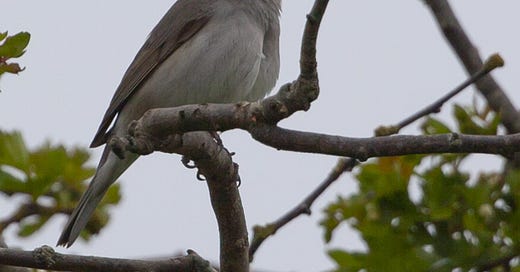






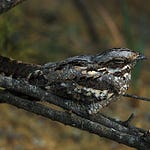
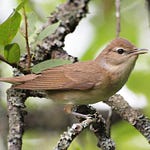

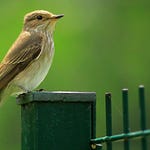


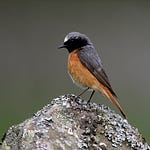
Share this post